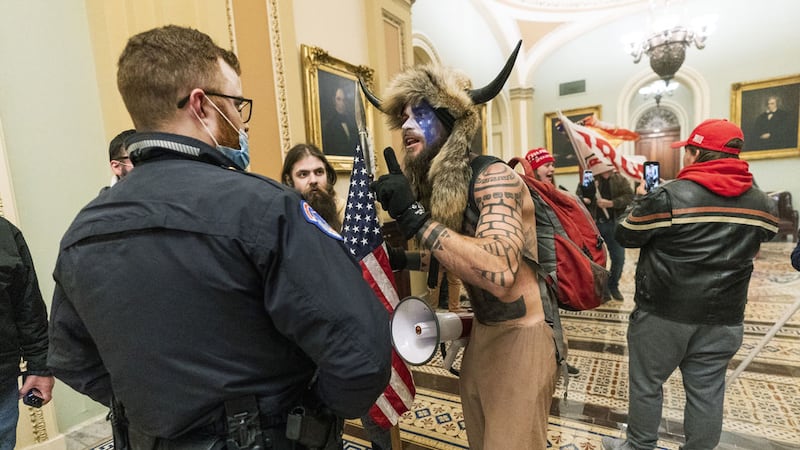SEVERAL years ago I encountered Donald Trump at a social event in New York where journalists rubbed shoulders with a wide range of public figures.
He wasn’t significant at the time in political terms, being known mainly for business activities and hosting the American version of the reality TV series The Apprentice. What struck me most about him was his large mane of cornflake-yellow hair (to avoid political labelling in a Northern Ireland context I won’t call it orange) which seemed, at first glance anyway, to have its roots mainly towards the back of his head but of sufficient length to extend as far as his forehead. He was accompanied by his third wife, Melania, whose appearance was also striking in a more conventional sense; Trump’s first wife Ivana was at the same function and I recall a pleasant conversation with a group of which she was a part.
It would have required the gift of prophecy that night in the Big Apple to anticipate the impact Trump would have on political life in the USA and beyond. Nobody could have predicted that he would be accused of fomenting an assault on the Capitol building in Washington DC, the citadel of American democracy.
Like many others, I am in something of a state of shock at the news footage of that episode and the five deaths that resulted. It recalled historical accounts of the storming of the Winter Palace in Petrograd (now St Petersburg) which marked the climax of Russia’s October Revolution in 1917. But the people who stormed the Capitol weren’t Bolsheviks: some conspiracy theorists suggest the right-wing crowd was infiltrated by hard-left agitators, but the political thrust of the event could hardly be described as Marxist-Leninist.
Trump said afterwards that he was “outraged by the violence, lawlessness and mayhem” of what happened at the Capitol but he was still widely blamed for the turmoil, with many people taking a view similar to Irish foreign minister Simon Coveney’s message on Twitter that there had been “a deliberate assault on Democracy by a sitting President & his supporters, attempting to overturn a free & fair election”. There has since been talk of a “Million Militia March” at the same venue to protest against the inauguration of Joe Biden as President on January 20.
Another key figure on the current American scene that I came across in my travels back in the day was leading Republican Senator Mitch McConnell, who has decisively taken his distance from Trump in recent times. In the course of an interview in his home state of Kentucky, he told me that his ancestor James McConnell emigrated from County Down in the 1760s at the age of five years and later fought in the American War of Independence.
On this side of the Atlantic, we don’t have many Trump-like politicians. Boris Johnson can be colourful at times but his rhetoric doesn’t go as far as The Donald’s. Thankfully, there is relatively little demagogy on the island of Ireland these days. In the north, there are obvious tensions in the five-party executive but former secretary of state Julian Smith, speaking on BBCNI’s Sunday Politics, rightly expressed relief that, after its three-year suspension, a power-sharing administration was restored in time to respond to the coronavirus crisis, whatever its internal differences. When we see hordes of DUP or Sinn Féin supporters marching to take over Stormont, then we can really get worried.
The pandemic has generated a significant degree of unity across the board in the south and the public would not tolerate it if politicians were blatantly exploiting the situation for party advantage. Hopefully we will all be vaccinated eventually and the cut-and-thrust of normal political life can return in full flight.
In the meantime, there are signs of internal tension in Fianna Fáil: in virtually every opinion poll since the February general election, the party has been in third place behind its main coalition partner Fine Gael as well as Sinn Féin on the opposition benches. Some are suggesting that party leader and current Taoiseach Micheál Martin from Cork should be replaced by a Dublin TD, since FF are particularly weak in the capital. But if Martin can see off the coronavirus as head of government, his political future will probably be more secure.
Email: Ddebre1@aol.com; Twitter: @DdeBreadun








